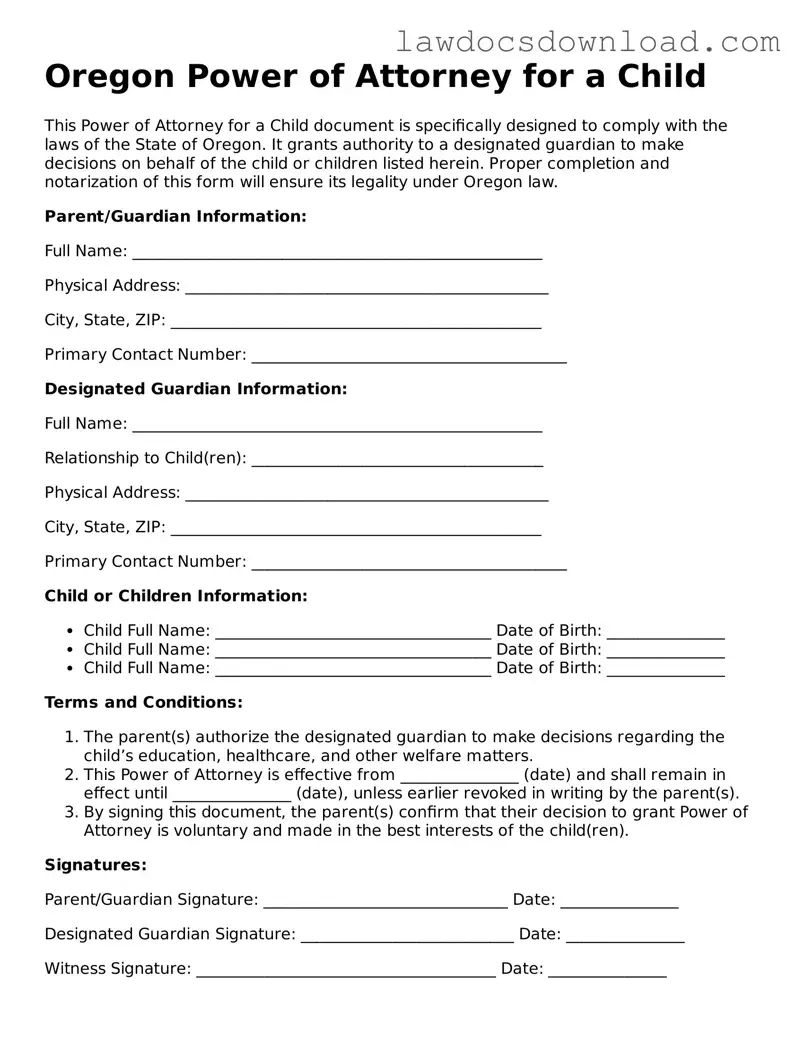Oregon Power of Attorney for a Child
This Power of Attorney for a Child document is specifically designed to comply with the laws of the State of Oregon. It grants authority to a designated guardian to make decisions on behalf of the child or children listed herein. Proper completion and notarization of this form will ensure its legality under Oregon law.
Parent/Guardian Information:
Full Name: ____________________________________________________
Physical Address: ______________________________________________
City, State, ZIP: _______________________________________________
Primary Contact Number: ________________________________________
Designated Guardian Information:
Full Name: ____________________________________________________
Relationship to Child(ren): _____________________________________
Physical Address: ______________________________________________
City, State, ZIP: _______________________________________________
Primary Contact Number: ________________________________________
Child or Children Information:
- Child Full Name: ___________________________________ Date of Birth: _______________
- Child Full Name: ___________________________________ Date of Birth: _______________
- Child Full Name: ___________________________________ Date of Birth: _______________
Terms and Conditions:
- The parent(s) authorize the designated guardian to make decisions regarding the child’s education, healthcare, and other welfare matters.
- This Power of Attorney is effective from _______________ (date) and shall remain in effect until _______________ (date), unless earlier revoked in writing by the parent(s).
- By signing this document, the parent(s) confirm that their decision to grant Power of Attorney is voluntary and made in the best interests of the child(ren).
Signatures:
Parent/Guardian Signature: _______________________________ Date: _______________
Designated Guardian Signature: ___________________________ Date: _______________
Witness Signature: ______________________________________ Date: _______________
This document was signed in the presence of a witness to confirm the identities of all parties and their voluntary agreement to the terms herein. To ensure full legality, it is recommended that this document be notarized.
Notary Acknowledgment:
State of Oregon, County of _________________________
On this day, ___________________________, before me, __________________________________ (name of notary), personally appeared __________________________________ (name(s) of individual(s)), known to me (or satisfactorily proven) to be the person(s) whose name(s) is/are subscribed to the within instrument, and acknowledged that they executed the same for the purposes therein contained.
In witness whereof, I hereunto set my hand and official seal.
Notary Signature: ____________________________ Date: _______________
My commission expires: ________________________

